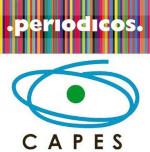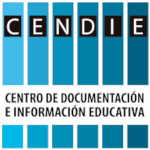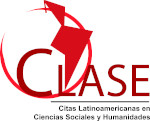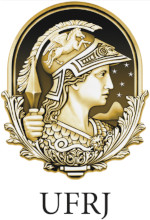Innovative lighting in the pedagogical proposal from a secondary education school
DOI:
https://doi.org/10.26849/bts.v45i1.744Keywords:
Secondary school, Technical and vocational education and training, Curriculum, School managementAbstract
This paper investigates how some pedagogical strategies of a secondary education school that applies the methodology of apprenticeship training workshops can encourage the students to enter and stay in secondary education schools. From the documentation gathered in the preparation of the study, an analysis of the pedagogical proposal of the investigated school was carried out. The methodology chosen was the policy cycle, which proposes an analysis of educational policies in a historical, dialogical and plural process.
Downloads
References
BALL, Stephen J. Education reform: a critical and post-structural approach. Buckinghan: Open University Press, 1994.
BALL, Stephen J.; BOWE, Richard; GOLD, Anne. Reforming education & changing schools: case studies in Policy Sociology. New York: Routledge, 1992.
BALL, Stephen J.; MAINARDES, Jefferson (org.). Políticas educacionais: questões e dilemas. São Paulo: Cortez, 2011.
BARDIN, L. Análise de conteúdo. Lisboa: Edições 70, 2011.
BRASIL. Lei n. 9.394, de 20 de dezembro de 1996. Estabelece as Diretrizes e Bases da Educação Nacional. Diário Oficial: seção 1, Brasília, DF, ano 134, n. 248, p. 27833-27841, 23 dez. 1996. Disponível em: http://www.planalto.gov.br/ccivil_03/Leis/L9394.htm. Acesso em: 10 jan. 2015.
BRASIL. Lei n. 12.013, de 6 agosto de 2009. Altera o art. 12 da Lei n. 9.394, de 20 de dezembro de 1996, determinando às instituições de ensino obrigatoriedade no envio de informações escolares aos pais, conviventes ou não com seus filhos.
Diário Oficial da União: seção 1, Brasília, DF, ano 146, n. 150, p. 1, 7 ago. 2009. Disponível em:http://www.planalto.gov.br/ccivil_03/_ato2007-2010/2009/lei/l12013.htm. Acesso em: 6 mar. 2017.
BRASIL. Ministério da Educação. Diretrizes curriculares nacionais gerais da educação básica. Brasília, DF: Ministério da Educação, 2013.Disponível em: http://portal.mec.gov.br/index.php?option=com_docman&view=download&alias=15547-diretrizes-curiculares-nacionais-2013-pdf-1&Itemid=30192. Acesso em: 6 mar. 2016.
COELHO, S. R. S. Gestão pedagógica do ensino médio: estudo de caso sobre uma metodologia inovadora na Cidade de Curitiba-PR. 2017. Tese (Doutorado em Educação) – Escola de Educação, Tecnologia e Comunicação, Universidade Católica de Brasília, Brasília, DF, 2017. Disponível em: https://bdtd.ucb.br:8443/jspui/bitstream/tede/2365/2/SilviaReginadosSantosCoelhoTese2017.pdf. Acesso em: 28 maio 2018.
CONSELHO ESTADUAL DE EDUCAÇÃO (PR). Câmara do Ensino Médio e da Educação Profissional Técnica de Nível Médio. Processo n. 831/14: Parecer CEE/CEMEP n. 505/14. Pedido de mudança na matriz curricular da rede dos Colégios Sesi/PR, para o ano letivo de 2015. Curitiba: Conselho Estadual de Educação, 12 ago. 2014. Disponível em: http://www.cee.pr.gov.br/arquivos/File/pdf/Pareceres_2014/CEMEP/pa_cemep_505_14.pdf. Acesso em: 12 ago. 2017.
DELORS, J. et al. Educação um tesouro a descobrir: relatório para a UNESCO da Comissão Internacional sobre Educação para o Século XX. São Paulo: Cortez, 1999.
GOMES, C. A. A educação em novas perspectivas sociológicas. 4. ed. São Paulo: EPU, 2005.
GOMES, C. A.; COELHO, S. R. S.; LIMA, L. C. A. Ser ou não ser estudante da educação de adultos no Brasil?: eis a questão. Revista Interamericana de Educación de Adultos, Patzcuaro, México, v. 39, n. 2, p. 10-29, jul/dez. 2017. Disponível em: http://www.crefal.edu.mx/rieda/index.php?option=com_content&view=article&id=287&Itemid=238. Acesso em: 25 jul. 2017.
HERNÁNDEZ, Fernando. Transgressão e mudança na escola: os projetos de trabalho. Porto Alegre: Artmed, 1998.
INEP. Melhores práticas em escolas de ensino médio no Brasil. Brasília, DF: INEP, 2010.
LIMA, L. C. A.; COELHO, S. R. S.; GOMES, C. A. Educação obrigatória até 17 anos: o que fazer com o ensino médio? Boletim Técnico do Senac, Rio de Janeiro, v. 41, n. 3, p. 70-89, set./dez. 2015. Disponível em: http://www.bts.senac.br/index.php/bts/article/view/37/25. Acesso em: 18 dez. 2015.
MAINARDES, J. Abordagem do ciclo de políticas: uma contribuição para a análise de políticas educacionais. Educação & Sociedade, Campinas, v. 27, n. 94, p. 47-69, jan./abr. 2006. Disponível em: http://www.scielo.br/pdf/es/v27n94/a03v27n94.pdf. Acesso em: 25 mar. 2016.
MAINARDES, J.; STREMEL, Silvana. Informações sobre a abordagem do ciclo de políticas: lista de obras de S. J. Ball e de pesquisas brasileiras que empregam suas ideias. Ponta Grossa: Universidade Estadual de Ponta Grossa, 2015. Disponível em: http://www.uepg.br/gppepe. Acesso em: 14 fev. 2016.
MORIN, E. Introdução ao pensamento complexo. 3. ed. Porto Alegre: Sulina, 2007.
PERRENOUD, P. Avaliação da excelência à regulação das aprendizagens: entre duas lógicas. Porto Alegre: Artmed, 1999.
POZO, J. I. A solução de problemas: aprender a resolver, resolver para aprender. Porto Alegre: Artmed, 1998.
RIGON, M. C. Prazer em aprender: o novo jeito da escola. Curitiba: Kairós, 2010.
SESI. DR. PR. Colégio SESI: proposta pedagógica do ensino médio. Curitiba: SESI, 2009a.
SESI. DR. PR. Colégio SESI: proposta pedagógica do ensino médio. Curitiba: SESI, 2011.
SESI. DR. PR. Colégio SESI: proposta pedagógica do ensino médio. Curitiba: SESI, 2014.
SESI. DR. PR. Colégio SESI: proposta pedagógica do ensino médio. Curitiba: SESI, 2017.
SESI. DR. PR. Colégio SESI Ensino Médio: regimento interno. Curitiba: SESI, 2009b.
STAKE, R. E. A arte de investigação com estudos de caso. Lisboa: Gulbenkian, 2007.
Fontes consultadas
ALLISON, G.; ZELIKOW, P. Essence of decision: explaining the Cuban missile crisis. 2. ed. New York: Longman, 1999.
POZO, J. I. Estratégias de aprendizagem. In: COLL, Cesar; PALÁCIOS, Jesus; MARCHESI, Álvaro (Ed.). Desenvolvimento psicológico e educação: psicologia da educação. Porto Alegre: Artmed, 1996. p. 176-197.
Downloads
Published
How to Cite
Issue
Section
License
Commitment to the Provision of Creative Commons Licensing
The Senac Journal of Education and Work is per the BY NC license, free of charge and with no commercial purpose.
In submitting their work for evaluation, the authors undertake to make their work available through the Creative Commons-BY NC license at the website <https://br.creativecommons.org>, thus dispensing with the need for signing any other document or contract with Senac to regulate the availability of their works in the Senac Journal of Education and Work.
The author (s) further declare that they recognize the Senac Journal of Education and Work as an open access journal, whose Policies and Authors Guidelines are available to know on its official website, namely - www.bts .senac.br - and that they can be modified at any time, and immediately any new condition published online.
The names and addresses informed in this journal will be used exclusively for the services provided by this publication and are not available for other purposes or to third parties.




















